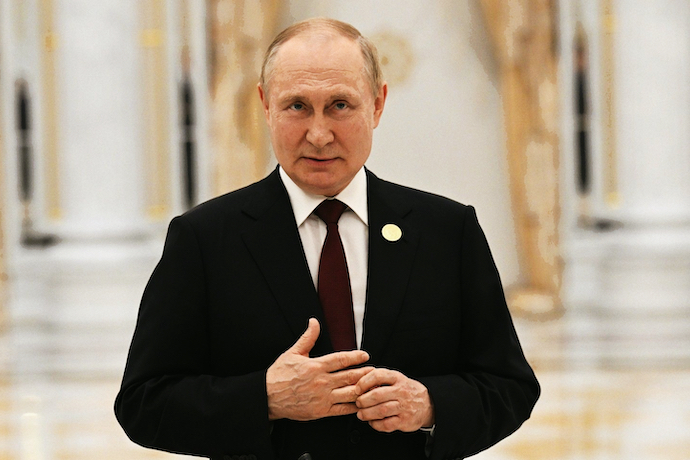The Platform
Latest Articles
by Kanan Heydarov
by Khalid Cherkaoui Semmouni
by Rasel Hossen Shakib
by Gordon Feller
by Collins Chong Yew Keat
by James Carlini
by Pitamber Kaushik
by Theo Casablanca
by Ikram Ali
by Eva Kneifel
by Kanan Heydarov
by Khalid Cherkaoui Semmouni
by Rasel Hossen Shakib
by Gordon Feller
by Collins Chong Yew Keat
by James Carlini
by Pitamber Kaushik
by Theo Casablanca
by Ikram Ali
by Eva Kneifel
Should Georgians Welcome Fleeing Russians with Open Arms?
The war in Ukraine marked a shift in how Western countries dealt with Russia. Countries such as the United States, the United Kingdom, and France, were swift to enact sanctions, as well as enforce restrictions on Russian nationals from entering their respective countries. Russians had to quickly adjust to their new reality.
The same can be said for Ukrainians. They as well were forced to face a new reality, a dystopia, all thanks to the war initiated by Vladimir Putin and his long-held goal to reunite the two countries.
However, despite the odds, the Ukrainians repelled Russia’s military that few political or military analysts saw coming. Often described as the underdogs in the war because of their supposed weaker military strength, Ukrainian soldiers have turned the country’s military into a formidable force, making it more difficult for Russia to annex the entirety of Ukraine.
As a result of Ukraine gaining ground throughout the war, even pledging to retake Crimea, Russia announced a partial mobilization in September. As mobilization entails the organization of the armed forces of a nation for active military service in times of war, this means that Russian businesses and citizens must contribute more to the war effort, with some men being drafted to help alleviate Russian military losses.
While the brutal genocide of Ukrainians, the bombing of civilian infrastructure, and the global food crisis potentially going to an all-time high because of the drastic decrease in Ukrainian wheat production were tolerated by many, the forced conscription of Russian men seemed to be the breaking point for many.

People demand change when conflicts begin to affect them, so the mobilization campaign sparked outrage. Russians went out on the streets to protest and many Russian men fled the country, creating a mass exodus of fighting-age men. Although Russia recently suspended the campaign, the suspension did not weaken the growing disapproval of Russians towards the war.
Sergei Shoigu, Russia’s defense minister, informed Putin during a televised meeting that the military had reached its goal of 300,000 additional troops and vowed to not pursue any further mobilization efforts. However, can we really trust the Kremlin’s word? They denied intelligence reports that caught them in the act of planning to invade Ukraine but ended up doing exactly what the reports detailed just two months later.
The suspension hasn’t triggered any significant number of Russians returning home. Many opted to flee to Turkey, Cyprus, or Georgia, where there are currently no restrictions placed on Russians. Although 80% of Turks think their country should remain neutral in the war and Cyprus is embracing becoming the new haven for Russian expats, Georgians have been very vocal about their displeasure with Russians fleeing and resettling there as political refugees.
Graffiti all over the capital of Tbilisi urging Russians to go home and to demand loyalty pledges, while some are forced to take surveys about the war and are only allowed to enter if they believe the invasion should have never occurred in the first place. While Russians fled to Georgia to avoid military conscription and Western sanctions, many Georgians feel uneasy about this sudden influx.
Who could blame them? Russia’s 2008 invasion left Georgia torn. There are now two disputed territories under Russian control: South Ossetia and Abkhazia, which are separated from mainland Georgia with barbed wire and Russian soldiers. The invasion only lasted five days, but the effects are still lingering in Georgia today. Temporary homes constructed to house war-torn Georgians are still standing and the majority of the population is still traumatized from having to flee their homes overnight to avoid being killed.
It is understandable that Georgians feel angry at Russians for taking in the benefits Georgia has to offer in comparison to Russia; however, the anger is simply misplaced. The war is Putin’s fault. Is it unfair that Georgia is now split apart because of Putin’s actions and families are separated by barbed wire, sometimes unable to see each other for an entire year? Yes. Do Georgians have a right to be angry at Russians? Absolutely. But at the end of the day, not all Russians support the war or support Putin’s authoritarian rule.
Georgians are and should not feel obligated to embrace Russians with open arms, but there are other methods to fight back against misinformation tactics. The real enemy is not ordinary Russians; the enemy is an authoritarian leader promoting the war.
Born to two former foreign service diplomats, Lily Jacobs has always had a keen interest in international affairs. As a citizen of both the U.S. and Germany, writing about global politics has always been in her blood. She uses her background to craft her writing into something that is understandable and engaging for any age group. Although she enjoys researching and writing about a variety of topics, her content focuses predominantly on these two themes: the threat of authoritarianism and inclusivity in politics.
